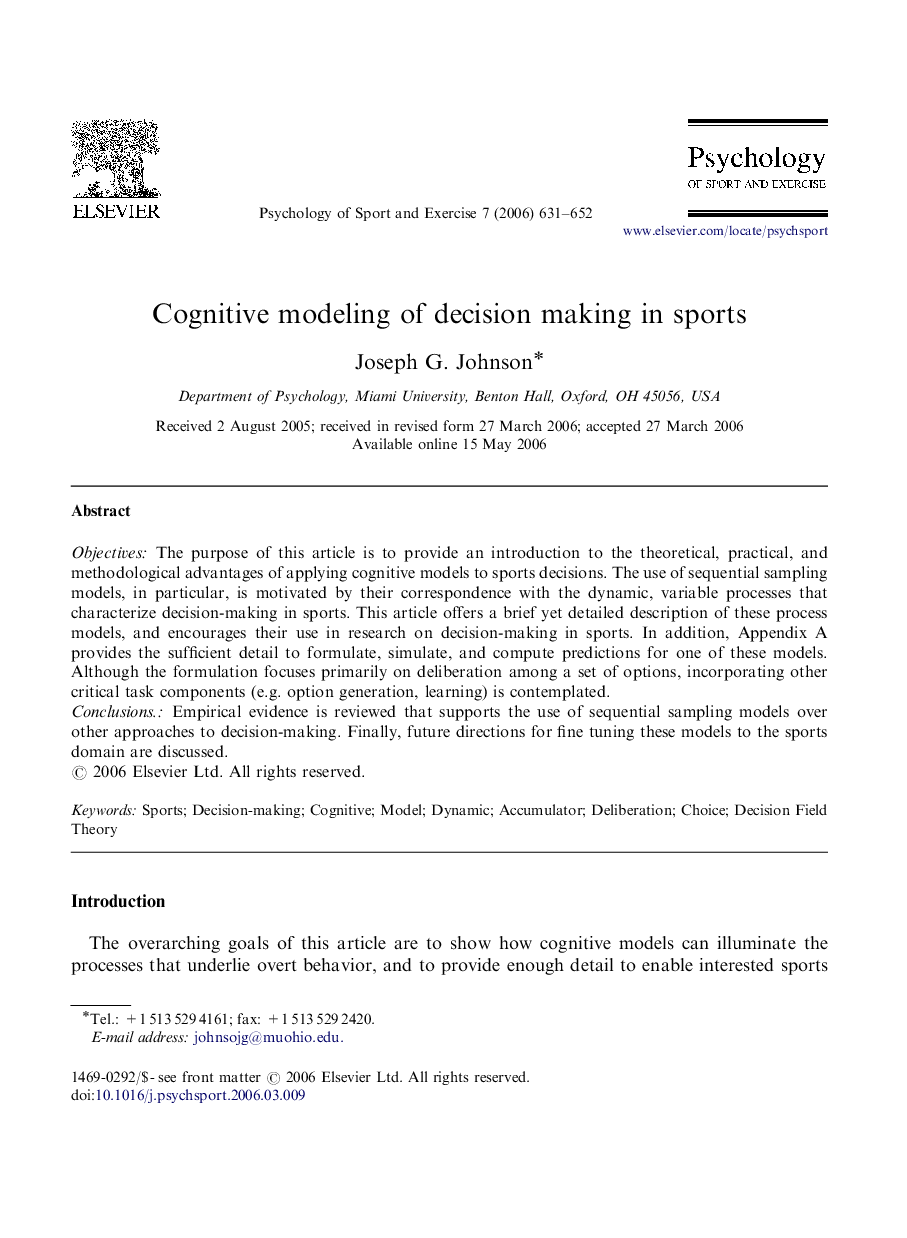| Article ID | Journal | Published Year | Pages | File Type |
|---|---|---|---|---|
| 894989 | Psychology of Sport and Exercise | 2006 | 22 Pages |
ObjectivesThe purpose of this article is to provide an introduction to the theoretical, practical, and methodological advantages of applying cognitive models to sports decisions. The use of sequential sampling models, in particular, is motivated by their correspondence with the dynamic, variable processes that characterize decision-making in sports. This article offers a brief yet detailed description of these process models, and encourages their use in research on decision-making in sports. In addition, Appendix A provides the sufficient detail to formulate, simulate, and compute predictions for one of these models. Although the formulation focuses primarily on deliberation among a set of options, incorporating other critical task components (e.g. option generation, learning) is contemplated.Conclusions.Empirical evidence is reviewed that supports the use of sequential sampling models over other approaches to decision-making. Finally, future directions for fine tuning these models to the sports domain are discussed.
